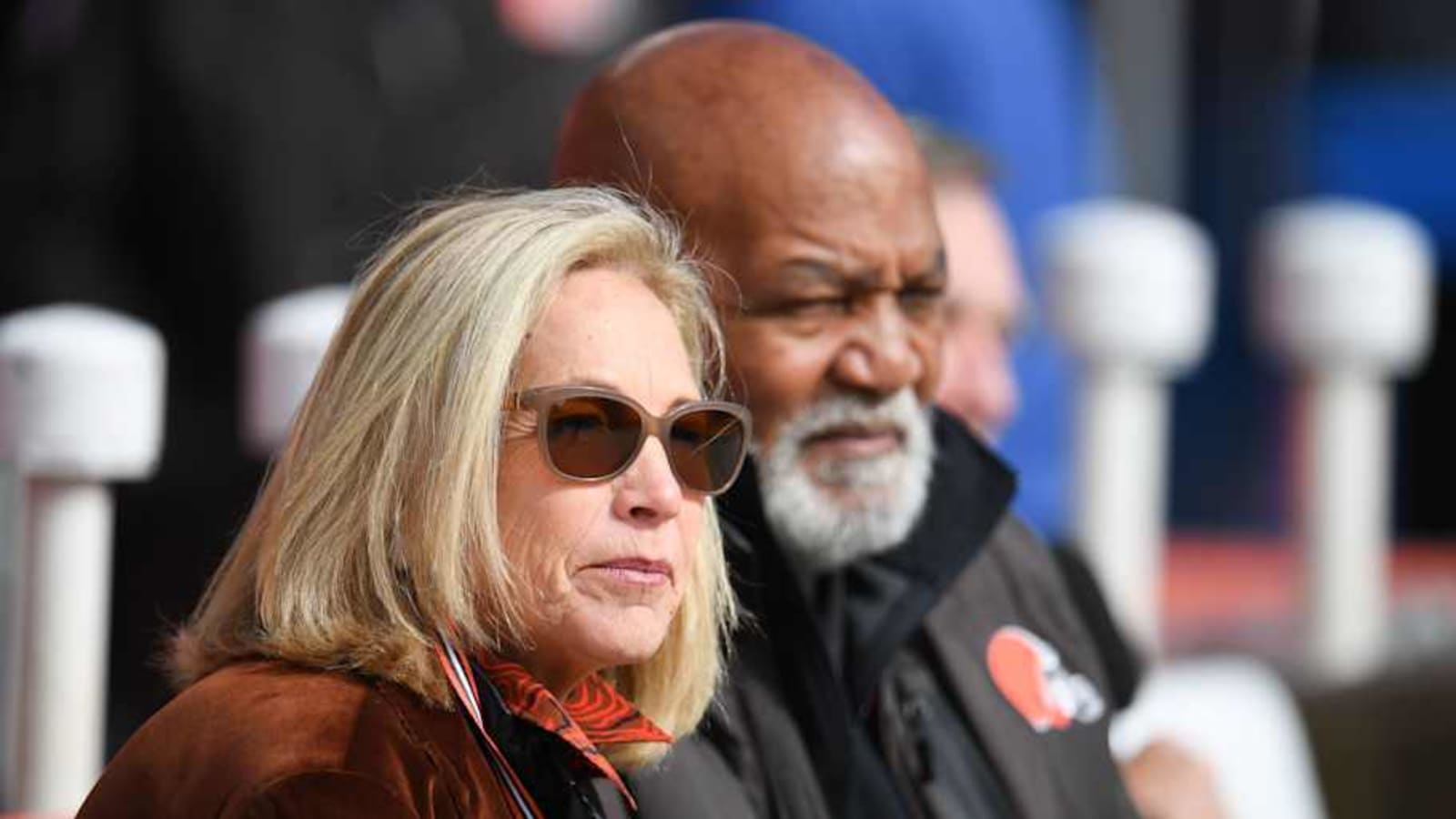
Cleveland Mayor Justin Bibb announced on Thursday that negotiations between himself and Browns ownership to keep the Browns stadium in downtown Cleveland had broken down, and that Jimmy and Dee Haslam plan on moving the team to a new domed stadium in Brook Park, OH.
The move would mean taking the Browns from downtown Cleveland and the current publicly owned Huntington Bank Stadium to Brook Park, depriving fans of a field to call their own that would actually be located in Cleveland. Now, Browns faithful will travel 20 minutes by car away from the city to catch the team sometime after 2028. That is when the current lease with the city ends.
In a letter to fans from August, the Haslam Sports Group shared renderings of a new domed stadium that promised to provide state of the art facilities and a new venue for not just football games, but for concerts and other major events that could attract visitors to the Cleveland area.
While we are excited about the possibility of building a dome and surrounding development in Brook Park, the City of Cleveland and the success of its downtown remain incredibly important to us. We acknowledge that a move to Brook Park may have a near-term impact on downtown, but we believe that the year-round activity of a domed stadium can still positively impact the downtown economy, particularly when coupled with the possibilities of a reimagined lakefront absent the stadium.Dave Jenkins, Haslam Sports Group
Bibb expressed his discontent with the move on Thursday during a press conference. He expressed that the decision by the Haslam's the move the team away from the city's lakefront is "frustrating and profoundly disheartening."
With a move, there are a few questions that remain for Cleveland residents and Browns fans. For one, a question of where funding will be coming from for this new stadium. According to an article from 92.3 The Fan published shortly after news broke about the new dome, the group is seeking an additional $1.2 billion in "state, county, and local municipality contributions" to cover the cost of the field, in addition to the $1.2 billion the group will be committing on its own.
Another question of what sort of competitive advantage this would mean for the Browns looms. Cleveland can get quite icy in the winter months, and while the Browns do not exactly seem destined for a deep postseason run right now as they set at 1-5 on the season, a better team in the future could benefit from a domed environment. Athletes are less susceptible to injury in dry weather conditions, and fans are more likely to come for cold winter games if the stadium they are arriving to is heated and covered.
For this stadium to go from a reality Browns should not have had to worry about to a reality coming to fruition over the course of just two months is a shock, to say the least.
More must-reads:
- Jets WR Garrett Wilson reacts to Davante Adams trade
- How Patriots QB Drake Maye can succeed in starting role
- The 'Most QB starts by NFL franchise' quiz
Breaking News
Customize Your Newsletter
 +
+
Get the latest news and rumors, customized to your favorite sports and teams. Emailed daily. Always free!
